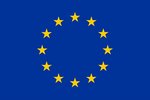Work packages
WP1: Rearing of young stock allowing cow-calf contact: on-farm strategies, legislation, and economic aspects
In modern dairy production, calf rearing with early separation from the mother is one of the practices that is not beneficial for animal welfare and also most strongly questioned by consumers. There are different strategies for allowing cow-calf contact implying possible benefits but also challenges. The aim of WP1 is to gain knowledge and describe existing strategies, to explore farmers’ motivators and barriers for using systems that allow mother-infant contact, to compare current legislation regarding calf rearing between countries and to evaluate the economic consequences of using different calf rearing strategies.
WP2: Innovative methods for dairy calf rearing focusing on boosting the immune system
WP2 investigates the hypotheses that (1) dairy calf rearing allowing mother-infant contacts improves cow and calf welfare including health without negative impacts on productivity and (2) enriched colostrum through feed supplements reduces disease susceptibility in calves.
WP3: Optimizing dairy calf rearing through enhanced milk feeding and calf fattening on dairy farms with the help of dams – effects on welfare including health
Although pioneers implementing alternative rearing systems with mother-infant contact or ad-libitum milk feeding are often organic farmers, the majority of dairy calves on organic farms is still reared with restricted milk amounts. This work package investigates the hypotheses that (1) milk amounts exceeding current recommendations lead to improved welfare including health and that (2) fattening of dairy calves using foster cows improves welfare including health and leads to a low use of antibiotics and an improved veal quality.
WP4: Impact of roughage feeding and pasture strategies on health traits of heifers and cows
In WP4 we assess (1) the effect of roughage feeding and grazing systems concerning young stock on health, longevity and fertility later in life, (2) the effect of non-silage vs silage feeding on health and health related traits in dairy and dual-purpose cows and (3) milk quality depending on feed ration.
WP5: Feeding plants containing bioactive compounds
The objective of WP5 is to use dietary plant bioactive compounds in pasture-based production systems for young calves and dairy cows to improve protein use efficiency, animal health, and product quality.
WP6: Project coordination and dissemination
This work package aims at (1) ensuring an efficient exchange of information between the work packages and at (2) disseminating relevant project results to stakeholders via different channels.
